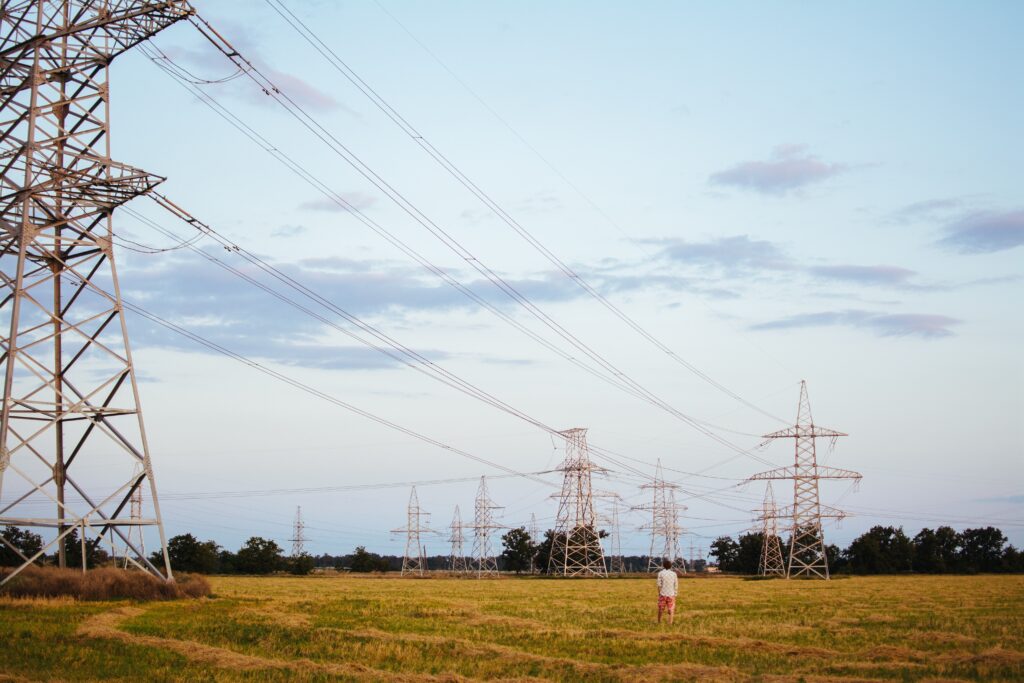Ofgem’s decarbonisation programme action plan sets out the regulator’s plans for the next 18 months.
The nine point plan focuses on supporting the expansion of electric vehicles (EVs), creating a more flexible grid and addressing greenwashing.
Jonathan Brearley, the new CEO of Ofgem, praised Britain’s decarbonisation efforts but said it “must go further, particularly on heat and transport”.
“We are taking an approach that recognises that our role protecting consumers includes achieving net zero.
“It is now vital that the energy industry rises to the challenge and demonstrates how it will work with the government and Ofgem to decarbonise Britain’s energy system at lowest cost,” Brearley said.
The regulator’s first point in the report looks at designing cost effective networks, largely through the new price control regulatory regime that it said will be more adaptive.
This focuses largely on RIIO-2, along with assurances that Ofgem will work with government to explore further opportunities for network innovation funding.
“We will also develop proposals to ensure that network innovation projects funded under the RIIO-2 innovation programme are aligned with wider public sector R&D activity and whole-system decarbonisation challenges,” states the report.
RIIO-2 has already come in for criticism however, with Ofgem’s Challenge Group finding that apart from National Grid ESO, no company has been “genuinely proactive in shaping the path to net zero”.
Ofgem’s second action is to set up a new strategic innovation fund, which will be focused on tackling decarbonisation. Thirdly, it will explore how best to effectively coordinate offshore networks to enable greater expansion in the UK’s offshore wind sector.
The government announced last year an ambition to significantly increase offshore wind production by 2030, but the report states: “We do not consider that individual radial offshore transmission links for this amount of offshore generation are likely to be economical, sensible or acceptable for consumers and local communities.”
As such, Ofgem commits in the report to reviewing the frameworks for connecting offshore wind, and exploring a more coordinated offshore transmission system.
The challenge of decarbonising heat and introducing more flexibility
Action four focuses on decarbonising heat, which Ofgem calls “arguably the biggest challenge that the energy sector faces over the coming decades”.
The regulator is planning to look into both hydrogen and electric heating solutions to decarbonise the sector, which is currently responsible for 18% of the country’s greenhouse gas emissions.
Ofgem also outlined how it plans on preparing system operators for a net zero future, which is interlinked with action six, supporting flexibility.
It identifies the need for greater flexibility to ensure the security of the grid whilst moving to fluctuating generation from renewables in order to decarbonise.
It highlights the need for energy storage, and improving system efficiency through new technologies such as flexibility platforms, automated demand-side response, aggregation and trading.
Market-wide settlement reforms are being looked at by Ofgem to help further facilitate flexibility, as well as the regulator currently undertaking a major programme of reforms to electricity network charging as part of the Future Charging and Access Programme.
Facilitating the rollout of electric vehicles
Next Ofgem aims to help with the rollout of ten million EVs by 2030 through developing “a regulatory strategy that will set out our role and define our actions in response to government policy on the electrification of transport”.
Today there are 230,000 EVs in the UK, but this will need to grow to 46 million by 2050 to meet net zero.
The rollout of EVs can work together with flexibility initiatives, with vehicle-to-grid (V2G) technologies helping to balance the networks. The report highlights that whilst such technologies are being enabled through digitalisation, the availability of data and the protection of this data is paramount.
Removing regulatory barriers and addressing greenwashing
Action eight shows Ofgem’s intent to open up retail innovation, by removing regulatory barriers where possible and expanding the sandbox. A further part of this intention focuses on removing greenwashing in the sector, with the regulator acknowledging the “growing concerns” of greenwashing, where the environmental impacts of a particular tariff or supplier “is overstated”.
“We expect suppliers to be transparent about what constitutes a ‘green tariff’ and we will undertake work to ensure that consumers are not misled,” states the report.
A number of energy suppliers have come in for criticism of greenwashing by launching green tariffs that rely on mechanisms such as REGOs. British Gas was the most recent to launch a 100% renewable tariff that used REGOs to back-up its supply.
One of the most vocal critics of greenwashing is Good Energy, who welcomed Ofgem addressing the problem in this report.
The supplier’s policy expert Tom Steward said: “We have never seen a clearer intent from the regulator to crack down on greenwashed energy tariffs. It is brilliant to see Ofgem acknowledge that some suppliers are overstating their environmental impact and that it plans to put a stop to consumers being misled”.
The final action in Ofgem’s decarbonisation action plan focuses on changes to the organisation itself, most notably becoming more adaptive to allow for the rapid change needed.
It will do this by taking a more project based approach, and increasing its capability to deploy resources with less rigid structures.
Additionally, it will establish a Net Zero Advisory Group to consider and comment on Ofgem’s actions, in particular with regards to innovation and price controls.
The report acknowledges the work already done in the UK to decarbonise, with greenhouse gas emissions having fallen by 40% since 1990, and says that while uncertainty remains about the best steps forward “we cannot stand still and wait for certainty. We must take action”.
However, there is a tricky balance that Ofgem must manage, as throughout the report it recognises trade-offs that must be made to protect consumers from rising bills, in particular the fuel poor.
This comes after a report last week by the National Audit Office found that Ofgem had missed opportunities to save consumers money, allowing network profits to soar, during the last price control period RIIO-1.





